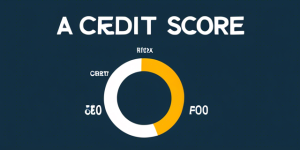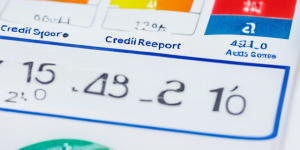
Buying a home is a significant milestone, and securing the right mortgage is crucial. Among the various loan options available, conventional loans are a popular choice. However, one of the essential requirements for obtaining a conventional loan is meeting the credit score criteria. In this article, we’ll dive into the world of credit scores and explore what you need to qualify for a conventional loan.
Understanding Credit Scores
Before we delve into the specifics of conventional loan requirements, let’s briefly discuss credit scores. A credit score is a three-digit number that represents your creditworthiness. It’s calculated based on various factors, including your payment history, outstanding debt, length of credit history, and credit mix.
Lenders use credit scores to assess the risk of lending to you. A higher credit score typically indicates a lower risk, making you a more attractive borrower. Conversely, a lower credit score may signal a higher risk, potentially leading to higher interest rates or even loan denial.
What Is a Conventional Loan?

A conventional loan is a type of mortgage that is not insured or guaranteed by the government. These loans are offered by private lenders, such as banks, credit unions, and mortgage companies. Conventional loans are often considered a more stringent option compared to government-backed loans, such as FHA or VA loans.
Credit Score Requirements for Conventional Loans
The credit score requirements for conventional loans can vary depending on the lender and the specific loan program. However, there are general guidelines that most lenders follow.
Minimum Credit Score
Generally, most lenders require a minimum credit score of 620 for a conventional loan. This is often referred to as the “baseline” credit score requirement. However, it’s important to note that a higher credit score may be necessary to qualify for the best interest rates and loan terms.
Credit Score Tiers
Lenders typically categorize credit scores into different tiers, each with its own set of requirements and implications. Here’s a general breakdown of credit score tiers for conventional loans:
- Excellent Credit (740 and above): If your credit score falls into this tier, you’re considered a low-risk borrower and will likely qualify for the best interest rates and loan terms.
- Good Credit (700-739): A credit score in this range is still considered good, but you may not qualify for the absolute best rates and terms.
- Fair Credit (620-699): With a credit score in this tier, you may still be approved for a conventional loan, but you’ll likely face higher interest rates and potentially stricter underwriting requirements.
- Poor Credit (619 and below): If your credit score falls below 620, it may be challenging to qualify for a conventional loan. In this case, you may need to explore alternative loan options or work on improving your credit score before applying.
It’s important to note that these credit score tiers are general guidelines, and individual lenders may have slightly different criteria.
Factors Affecting Credit Score Requirements

While credit scores are a significant factor in determining your eligibility for a conventional loan, lenders also consider other factors. These can include:
- Down Payment: A larger down payment can sometimes offset a lower credit score, as it reduces the lender’s risk.
- Debt-to-Income Ratio (DTI): Your DTI ratio is the percentage of your monthly gross income that goes towards paying your recurring debts, including the prospective mortgage payment. Lenders prefer a lower DTI ratio, typically below 43%.
- Employment History and Income Stability: Lenders want to ensure that you have a stable source of income to make your mortgage payments.
- Collateral: The value of the property you’re purchasing can also play a role, as it serves as collateral for the loan.
- Compensating Factors: In some cases, lenders may consider compensating factors, such as a strong employment history or significant cash reserves, to offset a lower credit score.
Tips for Improving Your Credit Score

If your credit score falls below the desired range for a conventional loan, there are several steps you can take to improve it:
- Review Your Credit Reports: Obtain a copy of your credit reports from the three major credit bureaus (Experian, Equifax, and TransUnion) and review them for any errors or inaccuracies. Dispute any incorrect information with the respective credit bureau.
- Pay Bills on Time: Payment history is one of the most significant factors affecting your credit score. Make sure to pay all your bills on time, including credit card payments, utilities, and other recurring expenses.
- Reduce Outstanding Debt: High levels of debt can negatively impact your credit score. Focus on paying down your existing debts, especially credit card balances, to improve your credit utilization ratio.
- Limit New Credit Applications: Each time you apply for new credit, it can result in a hard inquiry on your credit report, which can temporarily lower your score. Limit your credit applications unless absolutely necessary.
- Increase Credit Limits: If you have a good payment history with your existing credit cards, you may be able to request a credit limit increase. This can improve your credit utilization ratio without accumulating more debt.
- Use Different Types of Credit: Lenders prefer borrowers who can responsibly manage different types of credit, such as revolving credit (credit cards) and installment loans (personal loans, auto loans, etc.).
- Be Patient: Improving your credit score takes time and consistent effort. Depending on your specific situation, it may take several months or even years to significantly improve your credit score.
Conclusion
Obtaining a conventional loan requires meeting specific credit score requirements set by lenders. While a credit score of 620 is generally the minimum requirement, higher scores can lead to better interest rates and loan terms. Additionally, lenders consider other factors, such as your down payment, debt-to-income ratio, and employment history.
If your credit score falls below the desired range, don’t lose hope. By implementing strategies to improve your credit score, such as paying bills on time, reducing outstanding debt, and limiting new credit applications, you can increase your chances of qualifying for a conventional loan in the future.
Remember, buying a home is a significant investment, and taking the time to improve your credit score can save you thousands of dollars in interest over the life of your mortgage. Be patient, stay committed, and work towards achieving your homeownership goals.
Frequently Asked Questions (FAQs)
- Can I get a conventional loan with a credit score below 620? While a credit score below 620 may make it challenging to qualify for a conventional loan, it’s not impossible. Some lenders may approve borrowers with lower credit scores if they have compensating factors, such as a larger down payment or a low debt-to-income ratio. However, you may face higher interest rates and stricter underwriting requirements.
- How much of a down payment is required for a conventional loan? The minimum down payment for a conventional loan is typically 3%, but lenders often prefer a higher down payment, such as 20%, to avoid private mortgage insurance (PMI). A larger down payment can also help offset a lower credit score.
- Does my credit score affect the interest rate on a conventional loan? Yes, your credit score plays a significant role in determining the interest rate you’ll be offered for a conventional loan. Generally, the higher your credit score, the lower the interest rate you’ll qualify for, which can save you thousands of dollars over the life of the loan.
- How long does it take to improve my credit score? The time it takes to improve your credit score depends on your specific situation and the factors affecting your score. Typically, it can take several months to see a noticeable improvement, but more significant improvements may take a year or longer.
- Can I get a conventional loan with a low credit score and a co-signer? Some lenders may allow a co-signer with a higher credit score to help you qualify for a conventional loan if your credit score is low. However, not all lenders accept co-signers, and the co-signer becomes equally responsible for the loan.